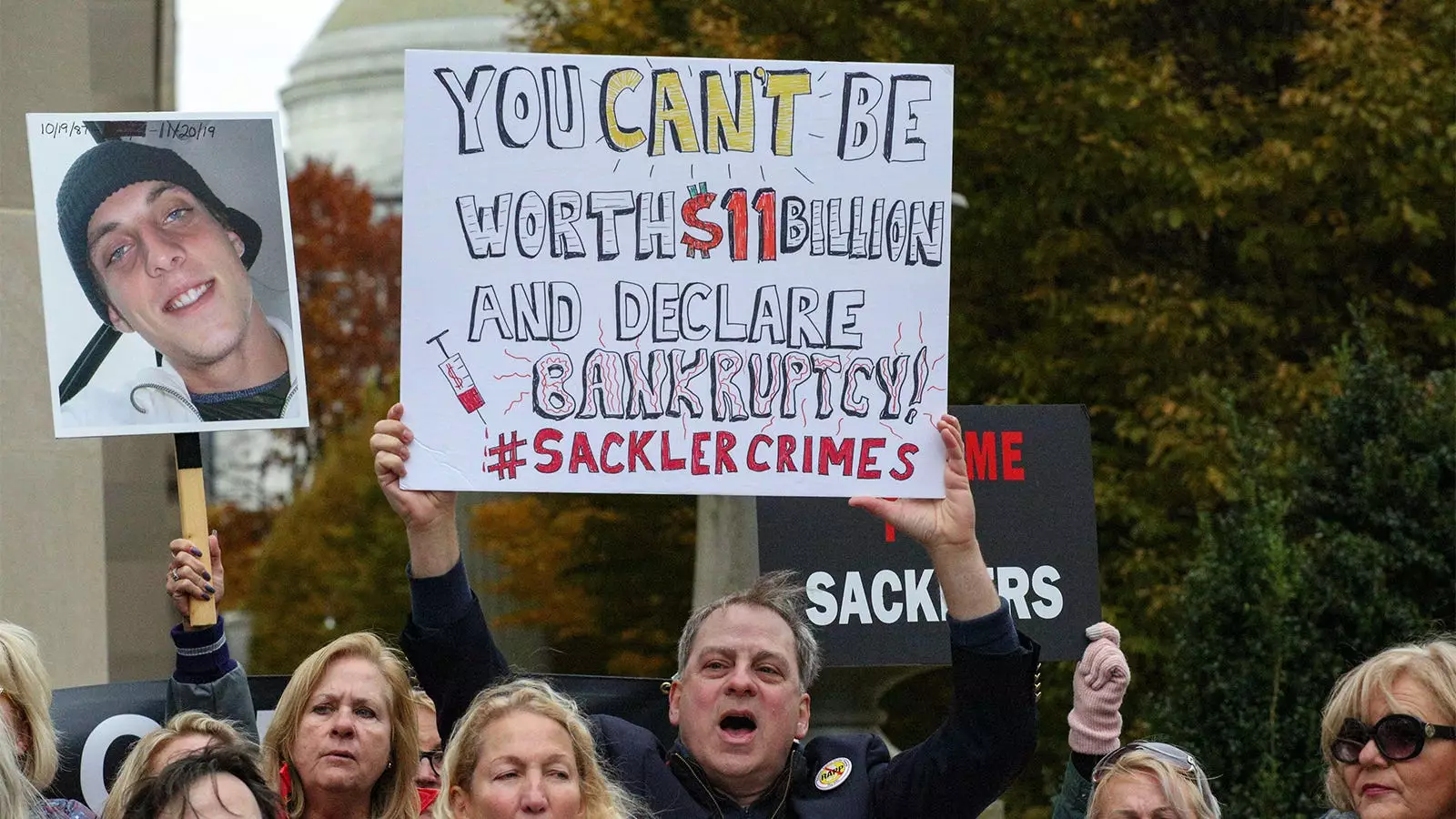In March 2022, the Sackler family faced a federal bankruptcy court in New York, where they listened to numerous individuals share their personal struggles with opioid use disorder and the devastating loss of loved ones to OxyContin overdoses. The Sacklers, who owned Purdue Pharma, the manufacturer of OxyContin, have been heavily implicated in driving the opioid overdose epidemic in the United States, which has claimed more than 500,000 lives since 2000. Although the bankruptcy hearing was expected to mark the end of the process, the legal battles surrounding Purdue’s bankruptcy continue to this day. In December 2023, the Supreme Court heard arguments in the case of Harrington v. Purdue Pharma L.P., and the outcome of the review is still pending. This situation raises questions about the urgency of providing relief to the victims who have long-awaited closure.
Two branches of the Sackler family were involved in running Purdue Pharma, and family members had served on the company’s board until 2019. OxyContin, a highly addictive long-acting opioid, played a significant role in the opioid epidemic and contributed to countless overdose deaths in the United States. Despite knowledge of its addictive nature, Purdue Pharma is accused of aggressively marketing the drug, leading to numerous lawsuits from individuals, governments, and other entities. In response to the mounting legal actions, the company filed for bankruptcy in 2019, which temporarily halted the lawsuits until a restructuring plan was approved to repay creditors. The plan included a provision that shields individual Sackler family members from future civil lawsuits and is known as a “non-consensual third-party release.” This provision has further fueled the debate over the responsibility of the Sackler family and the need for accountability in cases like this.
The Lack of Consistency in Bankruptcy Law
The current bankruptcy process has highlighted the lack of consistency among bankruptcy courts and federal circuit courts regarding non-consensual third-party releases. This provision often protects wealthy individuals or entities from liability, leaving victims without recourse. Bankruptcy experts have called for reform to establish uniformity in cases like the Purdue bankruptcy. In response to this need, the 117th Congress introduced the Nondebtor Release Prohibition Act of 2021, which aimed to prohibit non-consensual third-party releases in bankruptcy court. However, the bill failed to progress beyond the committee stage. The pending Supreme Court case, Harrington v. Purdue Pharma L.P., may lead to a resolution on this aspect of bankruptcy law and set a precedent for future cases.
The Sackler family’s ownership of Purdue Pharma has made them one of the wealthiest families in the United States, with an estimated collective worth of $11 billion. Reports suggest that the family withdrew nearly $11 billion from the company, starting in 2008. While no Sackler family member has faced criminal charges in connection with the marketing of OxyContin, Purdue Pharma has been found criminally liable for its role, resulting in settlements with the Department of Justice (DOJ). These settlements involve the dissolution of the company and a total fine of $6 billion. However, they do not assign individual fault or hold the Sackler family personally accountable. This lack of accountability has raised concerns and sparked demands for further action.
The current bankruptcy plan for Purdue Pharma includes a fund of $700 million to $750 million that would compensate individuals with personal injury claims against the company. If the Supreme Court allows the plan to proceed, claimants can expect to receive amounts ranging from $3,500 to $48,000. While this fund may provide some relief for those affected by Purdue’s marketing practices, it pales in comparison to the vast fortune of the Sackler family and the immense damage caused by the opioid epidemic. To truly address the needs of the families and communities affected, the Sackler family should voluntarily establish a fund to compensate those harmed by OxyContin. By allowing individuals to choose whether or not to release future claims, the Sacklers could demonstrate a genuine commitment to restitution.
Connecticut Attorney General William Tong rightfully points out that no settlement will ever fully address the suffering and harm caused by Purdue Pharma and the Sackler family. However, it is essential to pursue justice and provide some form of meaningful compensation. The pending Supreme Court case holds the key to the legal resolution, and it is crucial that the court’s decision reflects the magnitude of the opioid epidemic and the devastating consequences of Purdue’s actions. While waiting for the court’s ruling, it is crucial for lawmakers, legal experts, and advocates to continue pushing for bankruptcy reform and greater accountability for corporate entities and their owners.
The Purdue bankruptcy case underscores the urgent need for justice and compensation for the victims of the opioid epidemic. The Sackler family’s involvement and the complex legal battles have raised concerns about accountability and the fairness of the bankruptcy process. It is crucial for all stakeholders to work together to ensure that the victims receive the closure and restitution they deserve.


Leave a Reply